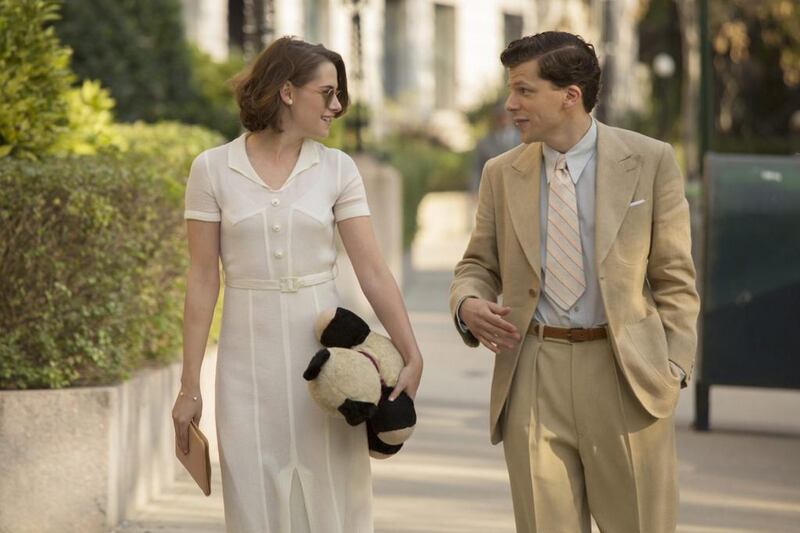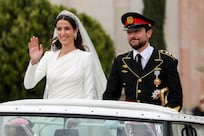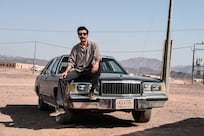Café Society
Director: Woody Allen
Stars: Jesse Eisenberg, Kristen Stewart, Blake Lively, Steve Carell
Three stars
After his last outing – the forgettable, featherweight Magic In the Moonlight – Woody Allen returns with the slightly more substantial Café Society.
The veteran writer-director returns to the subject of show business, a world he has explored in many of his films, from The Purple Rose of Cairo to Stardust Memories and Hollywood Ending. This time, he takes us to Tinseltown in the 1920s – a perfectly elegant era for Allen to set up a story about big dreams and lost love.
Jesse Eisenberg, who also appeared in Allen's 2012 movie To Rome With Love, plays Bobby Dorfman, a young East Coast Jew who arrives in Los Angeles with hopes of finding a job at the talent agency run by his uncle Phil (Steve Carell).
Bobby is introduced to Phil’s secretary Vonnie (Kristen Stewart), who is instructed to show the newcomer around town. No prizes for guessing that the nebbish New Yorker falls for the spirited Los Angeles sophisticate.
Appearing in their third movie together, after Adventureland and American Ultra, Stewart and Eisenberg have a sweet chemistry – though Allen seasons this love story with a bittersweet flavouring.
As Bobby soon discovers, Vonnie is entangled with a married man – his uncle. A romance that treads a rock-strewn path, Café Society conveys the intense pain love can bring, largely through the crushed and crestfallen Eisenberg.
Where the film falters is in the latter stages, when Bobby reconnects with his older brother, Ben (Corey Stoll), a feared gangster back East. This bicoastal story feels like a film of two very distinct halves – the second featuring Blake Lively as socialite Veronica. Narrated by Allen, this split storyline never really knits together into anything cohesive – it is more like two mid-length short films welded uneasily together.
Fortunately, even in its most insipid moments, Café Society is gorgeous to look at. It marks Allen's first foray into digital film and his masterstroke was to hire Vittorio Storaro, the legendary cinematographer who shot Apocalypse Now and The Last Emperor. The lighting is almost angelic in places – Café Society might be the most beautiful Woody Allen movie since Gordon Willis shot Manhattan for him in 1979.
There is also the work of Eisenberg to luxuriate in. From John Cusack to Kenneth Branagh to Jason Biggs, Allen has searched high and low for an actor to fully embody the sort of character he himself played on screen for years. With Eisenberg, he has finally found his younger self reincarnated, etched with anxiety and self-doubt.
Hopefully, a third collaboration will present itself soon – because these two are made for each other.
artslife@thenational.ae





